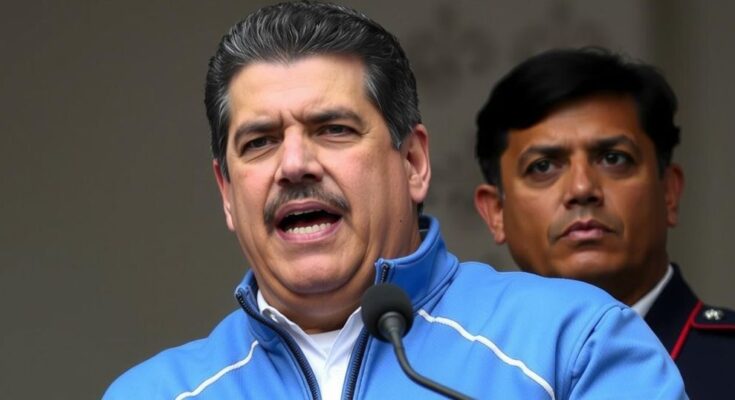Nicolás Maduro has been sworn in for a third term in Venezuela amid electoral disputes. The U.S. has expanded protections for Venezuelan and El Salvadoran residents. In the Middle East, Israeli forces struck Houthi targets in Yemen, and the Biden administration announced Russian energy sanctions.
In the recent news wrap, Venezuelan President Nicolás Maduro has been officially sworn in for a third consecutive term amidst allegations of electoral impropriety. Concurrently, the U.S. government has broadened protections for numerous Venezuelan and El Salvadoran nationals residing in the country. In other developments, Israeli military forces conducted strikes in Yemen, targeting Houthi positions following drone assaults aimed at Israel. Additionally, the Biden administration has initiated sanctions specifically targeting the Russian energy sector.
The political landscape in Venezuela has been tumultuous, particularly surrounding the legitimacy of Maduro’s leadership, as international observers have cast doubt on the fairness of the recent electoral process. The renewed protections for Venezuelan and El Salvadoran migrants reflect an ongoing humanitarian response from the U.S. government due to the challenging circumstances facing these populations. Moreover, the geopolitical tensions in the Middle East, exemplified by the Israeli military’s operations against the Houthis, continue to reflect broader regional conflicts, while sanctions against Russia signal the U.S.’s strategic efforts to address aggression in international relations.
In summary, the swearing-in of President Maduro symbolizes ongoing political strife in Venezuela, compounded by the United States’ response to the humanitarian needs of migrants. Meanwhile, the military actions in Yemen and the sanctions against Russia illustrate the complexities of contemporary global diplomacy and security. These events highlight the intricate interconnections between domestic policies and international relations, demonstrating the significant impact of political and military decisions on global stability.
Original Source: www.thirteen.org




